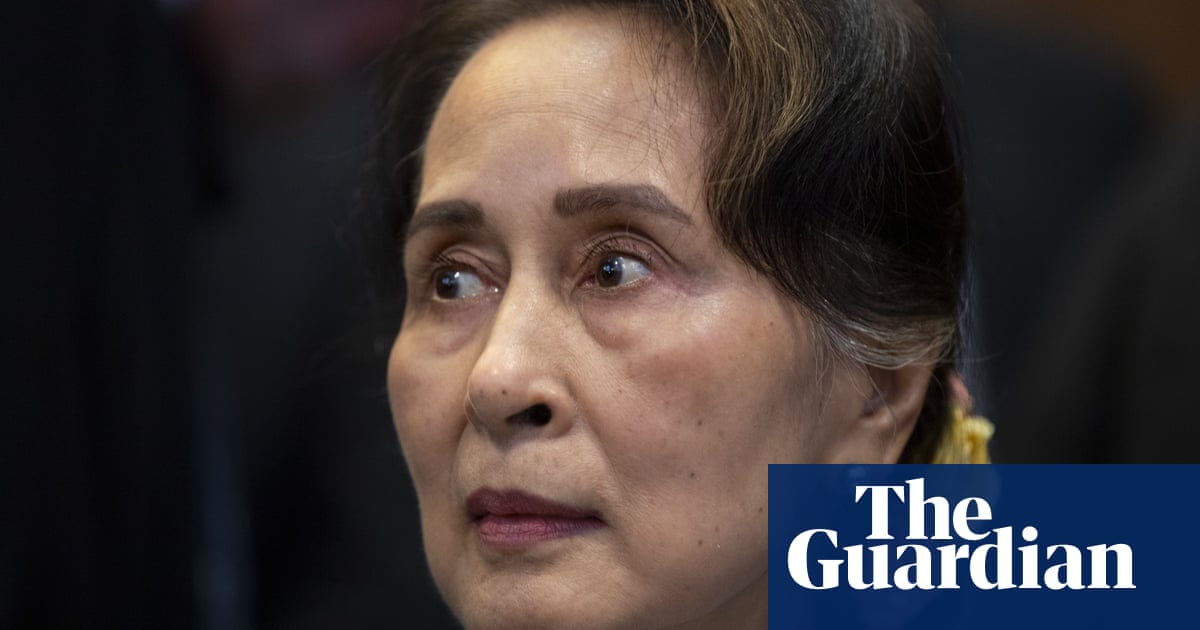
(Reuters) -Myanmar’s deposed leader Aung San Suu Kyi appeared in good health on Wednesday in her first video meeting with one of her lawyers since she was detained in a coup, as the United States ordered non-essential embassy staff to leave the country.
The Nobel laureate, who has been held in custody since the military seized power on Feb. 1, had wanted to meet lawyers in person but ended up being allowed a video conference in the presence of police, lawyer Min Min Soe told Reuters by telephone.
“Amay looks healthy, her complexion is good,” Min Min Soe said, using an affectionate term meaning “mother” to refer to Suu Kyi.
With police observing, only the legal cases against her filed since the coup were discussed, the lawyer said.
Suu Kyi, 75, was arrested the same day the military seized power and faces charges that include illegally importing six handheld radios and breaching coronavirus protocols.
The military has also accused her of bribery in two recent news conferences. Her lawyers say the charges were trumped up and dismissed the accusation of bribery as a joke.
The next hearing in her case is on Thursday.
The military has justified the coup by saying that a November election won by Suu Kyi’s party was fraudulent. The election commission said the vote was fair.
The reimposition of military rule after a decade of tentative steps towards democracy has triggered unrelenting opposition.
At least 521 civilians have been killed in protests, 141 of them on Saturday, the bloodiest day of the unrest, according to the Assistance Association for Political Prisoners (AAPP).
Fighting has also flared between the army and ethnic minority insurgents in frontier regions. Refugees fleeing the turmoil are seeking safety in neighbouring countries.
Thousands of protesters were out again on Wednesday in different parts of the country.
Residents in the main city of Yangon banged pots and pans and honked their car horns in a clamour of defiance as a news crew from CNN was shown around in what its correspondent said was a heavily armed convoy.
A Myanmar national working for South Korea’s Shinhan Bank was shot in the head and critically wounded in Yangon when a member of the security forces fired at the minivan she was travelling in, the Myanmar Now news portal reported.
A bank representative was not immediately available for comment after office hours.
Media also reported a gun battle between security forces and civilians near the northwestern town of Kale. Voice of Myanmar said one villager was killed and several policemen wounded.
A branch official from Suu Kyi’s National League for Democracy (NLD), U Kyaw Kyaw, died at an interrogation centre on Tuesday, two weeks after he was detained, a party colleague, Phyo Zewa Thaw, said on Facebook. He was the third NLD member to die in custody since the coup.
Police and a spokesman for the junta did not answer calls seeking comment.
The United States on Tuesday ordered the departure of non-emergency U.S. government employees and family members due to concern over what U.S. Secretary of State Antony Blinken called the “increasingly disturbing and even horrifying violence” against demonstrators.
City-based opponents of military rule have called for a united front with insurgent groups that have battled the government for decades in border regions.
Ousted members of parliament, mostly from Suu Kyi’s party, on Wednesday vowed to set up a federal democracy, addressing a long-standing demand from ethnic minority groups for autonomy.
The military rejects such proposals and sees itself as the only institution capable of holding the country together.
Myanmar’s oldest rebel group, the Karen National Union (KNU), said on Tuesday it was bracing for a major government offensive on its areas of operation along the eastern border with Thailand.
Military aircraft have been bombing KNU positions for the first time in more than 20 years and thousands of villagers have fled from their homes, many into Thailand.
Fighting has also flared in the north between government forces and Kachin Independence Army insurgents.
Separately, people have also been crossing from northwest Myanmar into India to escape the turmoil.
Western countries have condemned the coup and called for Suu Kyi’s release but those pressing for change have limited leverage in a country that was largely isolated for decades under strict military rule, and which retains the support of countries such as Russia and China.
In Washington, Blinken said foreign countries and companies with significant investments in enterprises that support Myanmar’s military should reconsider those stakes.
India’s Adani Group said it would consult authorities and stakeholders on its port project in Myanmar, after human rights groups reported its subsidiary had agreed to pay millions of dollars in rent to a military-controlled firm.












